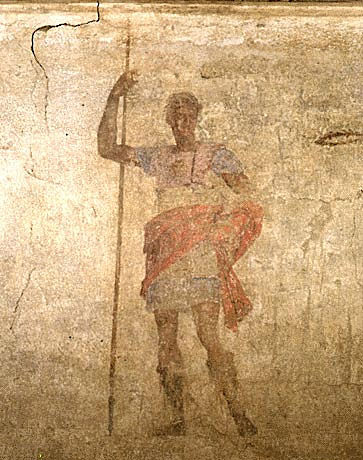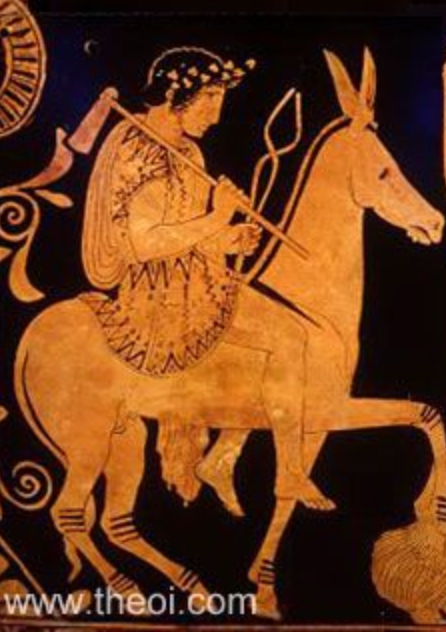There is no God of Architecture
** Why there isn't, and if there was, who it would it be **


what even is an architect?
Architecture as a practice was not well understood until more recent times. In fact, most 'designers' of recent structures have been stone-masons, and trained first and for-most as those. It is thought that architecture as a practice evolved out of planning larger structures such as cathedrals and estates. Many consider Vitruvius to be the first architect, although the term was not used until much later.
Although, of course, the term is greek in origin (archi - chief, tekton - builder), "architecture" as a practice began to be realized in early modern Europe. However, there was little difference between 'engineers' and architects, as many were versed in physics and maths. Slowly, as paper use was standardized and drawing became a primary feature of designers - these 'engineers' became more like architects. By the time of the Ecole D'Beauxs Art - the term was more well understood to encompass architectural designers as distinct from physics-based engineering - which began to be recognized for civic works as well as assisting architects.

Evidence of a time before the split can be seen in older public works, the Brooklyn bridge had a style that leaned towards brick gothic.
Ancient Greek architects weren't a thing.
But if they were, which deity would preside over it?
Well, technically. There were certainly central planners who we can conceive of as being architects, however their training was likely very different - as previously mentioned.
However, the greeks had a history of apotheosizing or personifying certain attributes of nature and society as gods and goddesses (the romans were actually worse about this). Greco-Mediterranean mythology is heavily referenced in modern literature and philosophy - so. Who would be the god of architecture?
Exhibit 1: Apollo
This one could be considered a gimme. Apollo was the god of almost everything. Art, music, poetry, civilization, the Sun, shepherds, youths, reason - etc. etc. You could say that he was a representation of things that were essential to greek religion, and therefore was seen as one of the most preeminent gods in the pantheon. Apollo was known as the enemy of evil, and a healer - as his son Asclepius famously became the god of Medicine and Physicians. He might embody the artistic side of architecture - but perhaps he's not the god of architecture itself.

Exhibit 2: Athena
Another wildly popular deity in greek religion, Athena was the goddess of strategy, defensive warfare, craftsmen, state-craft, heroes and heroic endeavors. Athena's relation to architecture is tenuous, but there is a case to be made. As a patron of craftsmen (and women), and of potters -there could be a case made that perhaps her help was evoked during the creation of friezes and ornamentation. Athena was known for her judgement, and people rarely questioned that. Her famous quarrel with Arachne showed just how harshly she took "hybris" against the gods - although Ovid does dramatize it.

Exhibit 3:
Hephaistos
Although hardly mentioned in mythological tales and fables from the islands and landmasses of the Aegean, Hephaistos (also spelled Hephaestus) is frankly the most likely candidate for the 'god of Architecture'. Jealous of Zeus's "autonatal" birth of Athena, Hera produced a child on her own (although in other traditions, he was the product of Hera and Zeus' marriage). Hephaistos was crippled at birth, and a disgusted Hera flung him from the mountain where he was raised by sea deities. Hephaistos built many of the gods of Olympus' affects - as he was the god of craftsmen. He was also lord of artists, forges, technology, sculpture... and stonemasonry. This means that ironworking and stonemasonry - both building arts - was very likely within Hephaistos' purview as a deity. Remember that masons, and not architects, laid out and designed the temples and palaces of the Ancient Greeks and Romans. This means that Hephaistos was very likely the God of Architecture.

** note of interest: Hephaistos' lameness was very likely a reference to the deformities that craftsmen endured at the expense of their jobs. However, even more interesting - differing levels of mercury poisoning were common among many craftsmen as they handled burning ores that were mixtures of different metals. This lead to the stereotype of the 'addled creator', which Hephaistos also represented. **